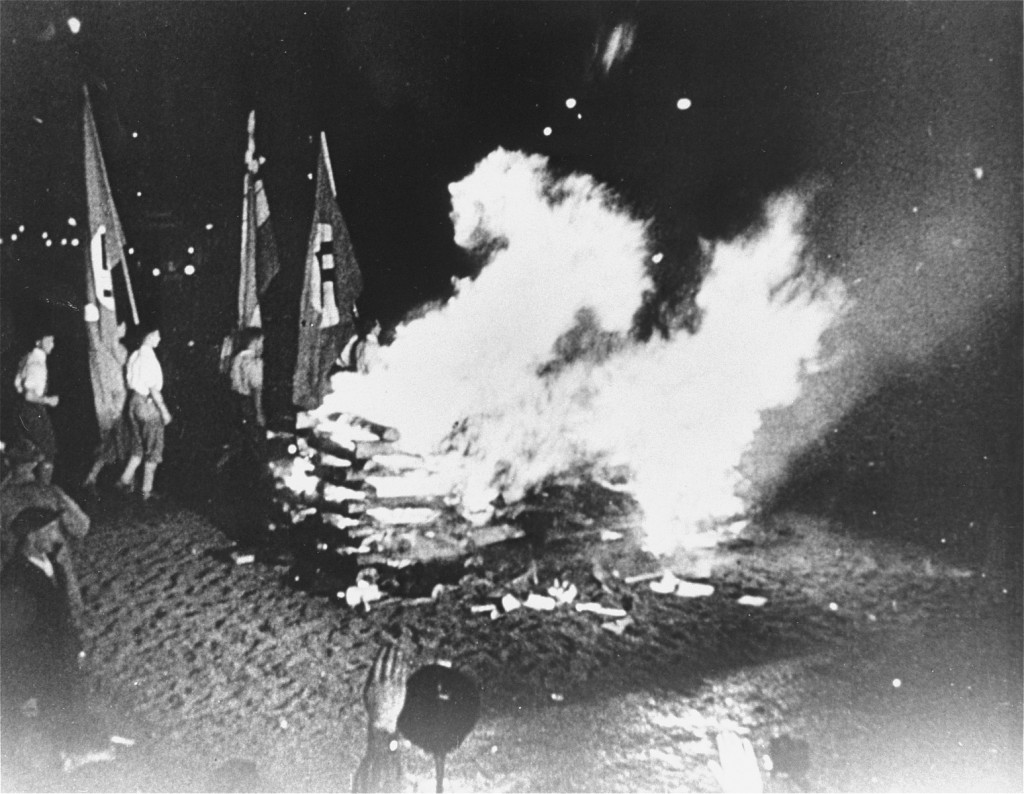
Louis Fischer
In 1933, Nazi students at more than 30 German universities pillaged libraries in search of books they considered to be "un-German." Among the literary and political writings they threw into the flames were the works of Louis Fischer.
Which of Louis Fischer's Works were Burned?
Oil Imperialism: The International Struggle for Petroleum
Who was Louis Fischer?
Philadelphia-born Louis Fischer (1896-1970) was a political historian and a recognized authority on the Soviet Union. During World War I, he fought with the Jewish Legion, a British military unit in Palestine. In 1922, he moved to the Soviet Union. He remained there for 14 years, working as a journalist.
In 1933, the Nazis burned Louis Fischer's writing for its sympathy toward Communism. Fischer left the Soviet Union during the Stalinist purges of intellectuals, many of Fischer's friends and fellow Jews among them. He gradually drifted away from Communism. Fischer traveled extensively, enlisting with the International Brigades during the Spanish Civil War and visiting India where he befriended Mahatma Gandhi.
In 1938, Fischer returned to the United States and eventually joined the faculty at Princeton University. By 1950, he was utterly disillusioned with Communism and took part in the milestone anti-Communist symposium "The God That Failed." His 1930 The Soviets and World Affairs was used as a textbook in 1950s America.
Critical Thinking Questions
How did the German public react to the book burnings? What were some of the reactions outside of Germany?
Why do oppressive regimes promote or support censorship and book burning? How might this be a warning sign of mass atrocity?

